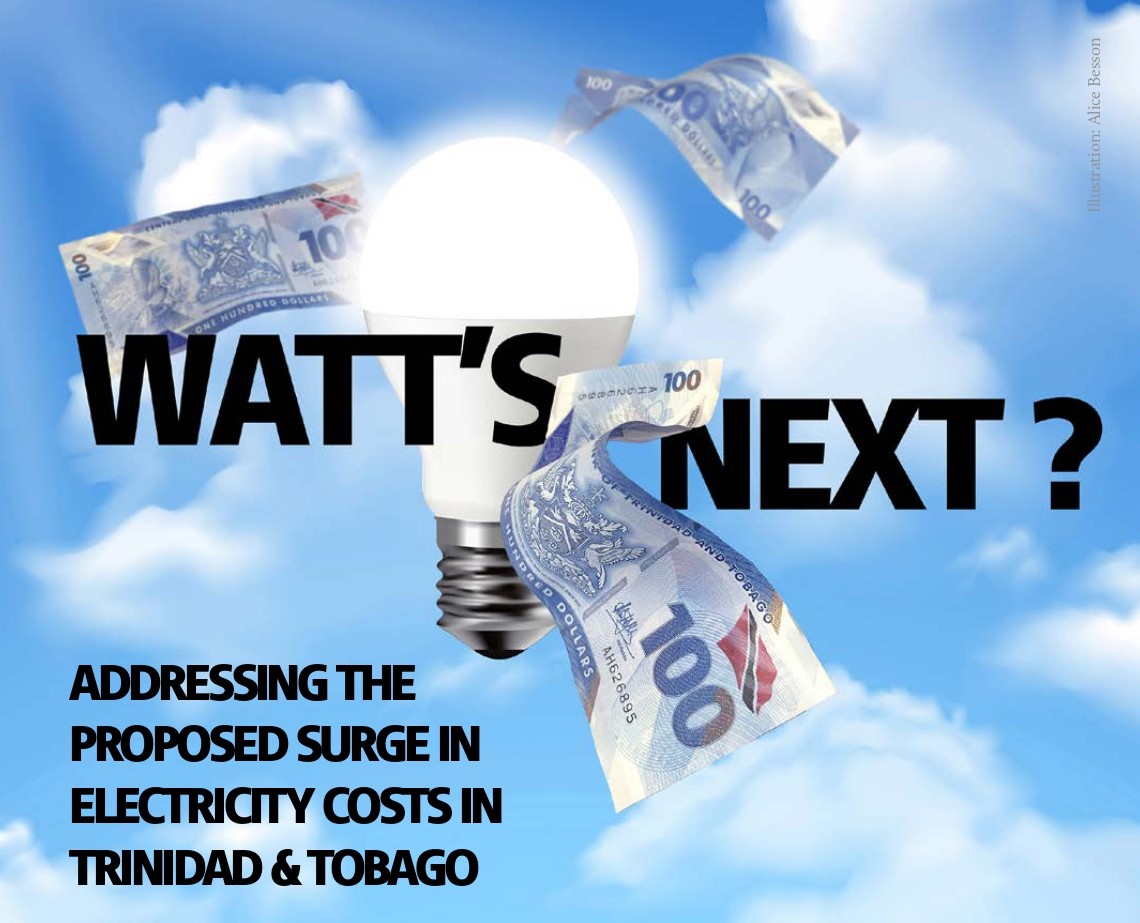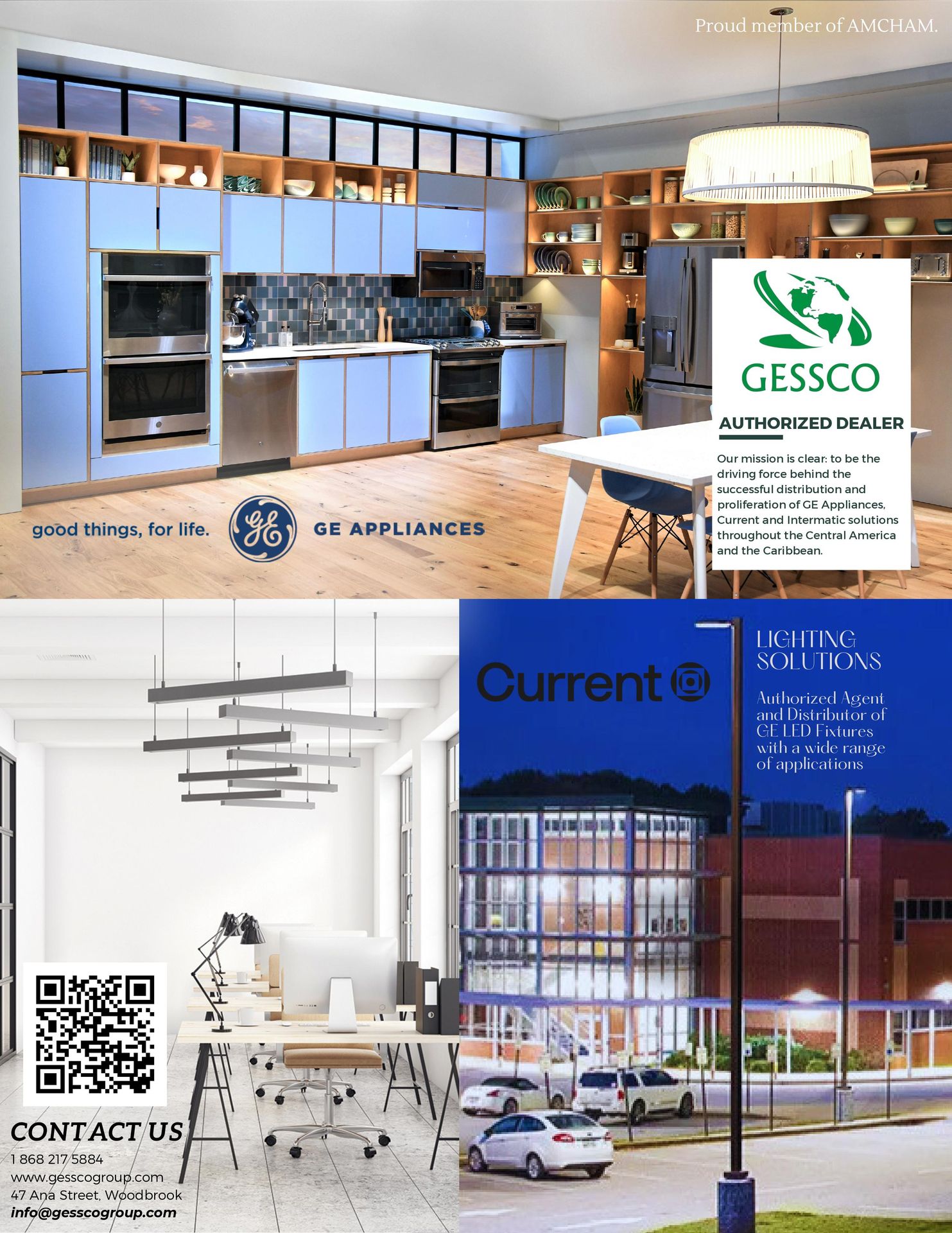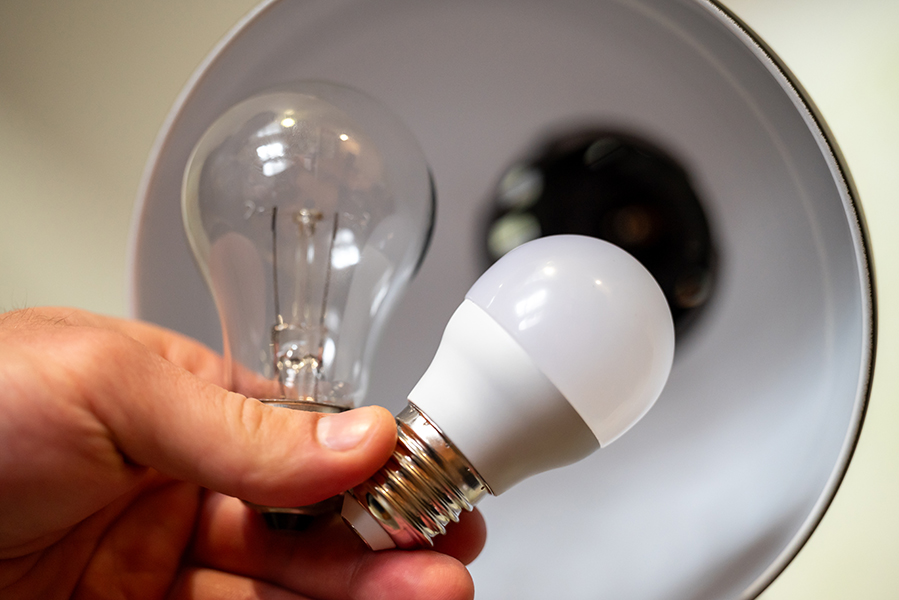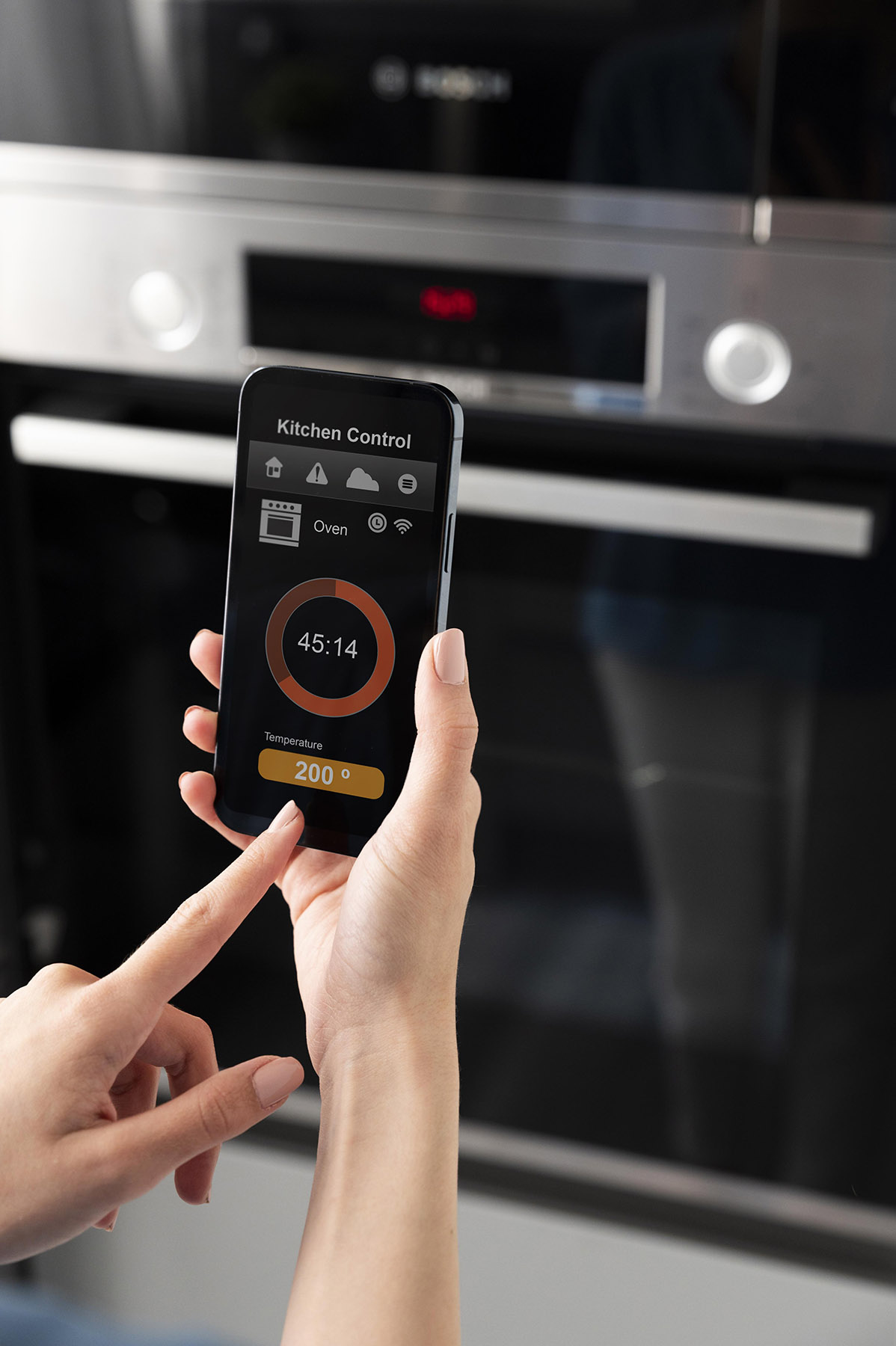WATT'S NEXT?
Addressing The Proposed Surge In Electricity Costs in Trinidad and Tobago
By Aneilia Missir
Account Executive | GESSCO Distributors Limited

LINKAGE Q2 (2024) - INSPIRE INCLUSION
“Your home electricity bill is now set to increase from between 15 to 64 per cent following a recommendation by the Regulated Industries Commission (RIC)… commercial customers will also see an increase.” (Trinidad Express, 2023)
A
s the cost of living rises, SMEs are increasingly concerned about the affordability and sustainability of products and services. The looming increase in electricity prices presents a choice for SMEs: it's either a challenge or an opportunity. This decision will impact their ability to stay competitive in an already tough economic landscape.
Navigating this evolving energy landscape can be either a great challenge or opportunity for visionary businesses as they explore strategies for mitigating the impact of the rising electricity prices. From various renewable energy solutions to efficiency measures, stakeholders are forced to be proactive and creative to ensure a sustainable and resilient future for the business community and citizens of Trinidad and Tobago or face a crisis of shocking proportions!

By exploring innovative strategies to mitigate the impact of rising electricity prices, businesses can surely safeguard their bottom line. On the flipside there are others already using their existing products or services to make innovative offerings and value-added services aimed at reducing energy costs for consumers and business counterparts alike.
Enhancing Energy Efficiency
One such strategy gaining traction is the adoption of renewable energy solutions. By harnessing the power of solar panels or wind turbines, businesses and citizens can reduce their dependence on traditional energy sources and lower their electricity bills in the long run. These solar offerings within the region are slowly becoming mainstream. This, together with the sensationalising of the impending surge, presents a lucrative avenue for sales. Moreover, investing in renewable energy offers additional benefits beyond cost savings and sales. In the forefront are environmental sustainability and resilience against future price fluctuations.
 Empowering businesses through energy efficiency knowledge is another crucial aspect of mitigating the impact of rising electricity costs. Simple yet effective strategies, such as conducting energy audits and optimising equipment usage, can yield significant savings while reducing carbon footprint.
Empowering businesses through energy efficiency knowledge is another crucial aspect of mitigating the impact of rising electricity costs. Simple yet effective strategies, such as conducting energy audits and optimising equipment usage, can yield significant savings while reducing carbon footprint.
Moreover, upgrading to energy-efficient lighting can further enhance energy efficiency and contribute to cost savings over time. By swapping out just one traditional incandescent light bulb with an LED equivalent, you can save enough energy to power a laptop for over a month! That's because LED bulbs use up to 80% less energy than their incandescent counterparts.
 While businesses play a vital role in addressing the challenges posed by rising electricity costs, residential consumers also have a part to play in adapting to the changing energy landscape. Homeowners can take proactive steps to reduce their electricity consumption and lower their utility bills by investing in energy efficient upgrades and implementing conservation measures. From installing solar panels to upgrading to energy-efficient appliances, there are numerous options available to homeowners looking to mitigate the impact of rising electricity prices on their household budgets.
While businesses play a vital role in addressing the challenges posed by rising electricity costs, residential consumers also have a part to play in adapting to the changing energy landscape. Homeowners can take proactive steps to reduce their electricity consumption and lower their utility bills by investing in energy efficient upgrades and implementing conservation measures. From installing solar panels to upgrading to energy-efficient appliances, there are numerous options available to homeowners looking to mitigate the impact of rising electricity prices on their household budgets.
Knowledge is Key!
Consider purchases on appliances for instance. Appliances with the Energy Star rating meets strict energy efficiency requirements set by the U.S. Environmental Protection Agency (EPA). If you’re in the market for new appliances or are looking to upgrade, consider purchasing appliances with the Energy Star certification sticker.
 Control systems that are included with air conditioning units, lighting and other systems that access data can be automated. They are able to detect variables such as outside air and room temperature, humidity, light level, and occupancy to maximise energy efficiency. New electronic devices and appliances can now be synced to each other and the internet to provide real-time data that makes it easier for the average consumer to understand and control energy use. Certain systems for instance, an oven, can be pre-heated in advance for easy use when you get home. Turning off a coffee maker left on accidentally is also a favourable energy efficient feature. Incorporating energy-efficiency into routines and automated control systems not only reduces energy consumption but also contributes to a more sustainable future for our homes and businesses.
Control systems that are included with air conditioning units, lighting and other systems that access data can be automated. They are able to detect variables such as outside air and room temperature, humidity, light level, and occupancy to maximise energy efficiency. New electronic devices and appliances can now be synced to each other and the internet to provide real-time data that makes it easier for the average consumer to understand and control energy use. Certain systems for instance, an oven, can be pre-heated in advance for easy use when you get home. Turning off a coffee maker left on accidentally is also a favourable energy efficient feature. Incorporating energy-efficiency into routines and automated control systems not only reduces energy consumption but also contributes to a more sustainable future for our homes and businesses.
The impending surge in electricity costs presents both challenges and opportunities for businesses and citizens alike in Trinidad & Tobago. By embracing innovative strategies, such as renewable energy adoption and energy efficiency measures, stakeholders can not only mitigate the impact of rising electricity prices but also pave the way towards a more sustainable and resilient future for the nation.
ABOUT THE AUTHOR

Anelia Missir is an Account Executive at GESSCO Distributors Limited